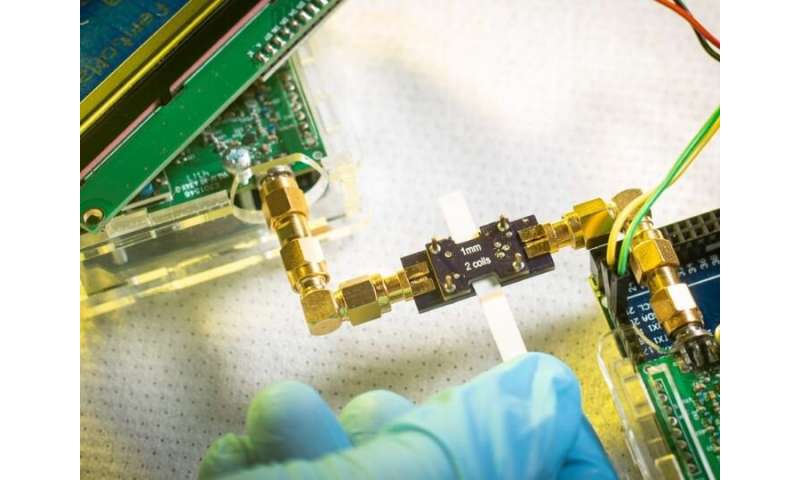Engineer leads team creating point-of-care test for prostate cancer

A team of researchers from the University of Houston and the University of Pennsylvania are working to bring a new biosensor for detecting the recurrence of prostate cancer to the doctor's office.
"Such tests exist in clinical laboratories, but there remains a critical need for inexpensive, versatile and high-sensitivity diagnostic platforms which can bring the performance to the point of care or doctor's office," said Dmitri Litvinov, principal investigator and professor of electrical and computer engineering at the University of Houston. The work is funded by a $399,988 grant from the National Science Foundation.
The population that would immediately benefit from such a point-of-care test are prostate cancer patients who have undergone radical prostatectomy but have positive surgical margins, with cancer cells detected at the edge of the removed tissue. These patients are at high risk for recurrence, and long-term ultrasensitive prostate specific antigen (PSA) monitoring is required.
"An effective point of care PSA biosensor would simplify post-surgery testing, improve patient compliance and alleviate anxiety to help improve long-term patient outcomes," said Litvinov.
The proposed biosensor platform will be based on an ultrahigh sensitivity magnetic nanoparticles detector and will look similar to a home pregnancy test with an electronic readout. As a bonus for healthcare providers and patients alike, it's expected to cost under $3 per test.
The sensor, like the pregnancy test stick, is a lateral flow assay test, which detects the presence of condition-specific biomolecules (biomarkers) using appropriately designed biochemistry to trap biomarkers. Unlike the pregnancy test, which uses the color change in the test line as a readout, the new tool will use ultrasensitive sensing of magnetic nanoparticles trapped in a test line to detect trace amounts of prostate-specific antigen (PSA) in a patient's blood.
"A pregnancy test is basically a 'yes or no' test. In our test, not only can we detect PSA at exceptionally small concentrations but we can also quantify how much PSA is present," said Litvinov.
Because the tool will provide immediate information and be easily accessible, Litvinov believes it will provide early and affordable detection of disease recurrence. Timely identification of the appropriate treatment options can improve long-term patient outcomes.
"Our technology has potential to help improve survival rates with more accessible, affordable and easier testing," said Litvinov.
Provided by University of Houston